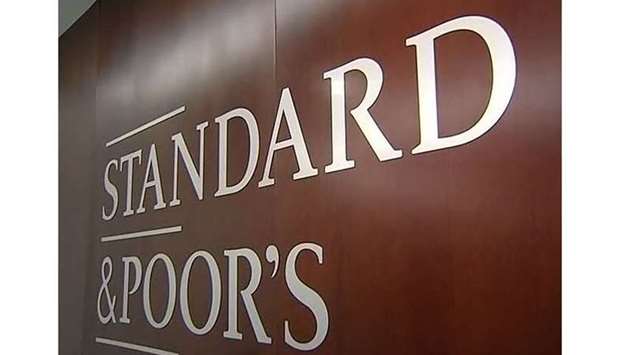The GCC (Gulf Co-operation Council) national oil companies (NOCs), which have strong appetite for debt issuance, are better positioned than most global players to weather the increasing and accelerating impact of the energy transition, according to Standard & Poor's (S&P).
"Notably, we believe these players' large and abundant reserves, good cash flow visibility, and attractive cost-competitive profiles could mean they are the last ones standing among oil producers," it said in a report.
Highlighting that over the past few months, the global investor community has increased scrutiny of the oil majors and environment, social and governance (ESG) strategies; S&P said it is "unlikely" that stakeholders – investors, shareholders, activities, non-governmental organisations, or simply wider society – exert as much pressure on the GCC energy companies as listed players in Europe or North America, at least in the short to medium term.
This comes in view of a court ruling against Shell (to reduce greenhouse gas [GHG] emissions 45% by 2030), shareholder activism to cut carbon emissions during Chevron Corp's annual meeting, and an activist hedge fund winning board seats and pension funds and management lending support to ESG-related investment changes at Exxon Mobil Corp's annual shareholder meeting.
"This gives NOCs in the GCC more time to manage the transition and implement strategic changes," it said.
Although the region is still only starting to attract international investors for its debt issuances, its findings suggest that capital markets are not differentiating GCC companies based on perceived ESG risk, at least for now.
"If we look at aggregate amounts, companies in the GCC energy sector do not face higher funding costs than other regional corporates, or even banks. In fact, funding costs for the energy sector are currently lower than for other corporates and relatively in line with those of Russian peers and the oil majors," it said.
From a pure rating perspective, S&P said, it believes the increasing challenges the energy transition poses to these companies, especially NOCs and GREs or government related enterprises, are for now somewhat mitigated by the strength of relevant sovereign shareholders.
"These shareholders have a strong incentive to support a sector of high importance to the local economy and/or to create a favourable ecosystem to allow NOCs and GREs to grow and develop despite shifting global dynamics," it said.
Despite increasing concerns on profitability, volatility, and the overall energy transition, "we view the long reserve life and low production costs of GCC NOCs as supporting credit ratios and balance sheets in the short-to medium term", it said.
Finding that the appetite for regional NOC issuances has been strong; it said notably, Qatar Petroleum's $12.5bn bonds in June 2021 secured about $41bn in orders, and landed 10 basis points (bps)-15 bps wider than the sovereign curve.
"Notably, we believe these players' large and abundant reserves, good cash flow visibility, and attractive cost-competitive profiles could mean they are the last ones standing among oil producers," it said in a report.
Highlighting that over the past few months, the global investor community has increased scrutiny of the oil majors and environment, social and governance (ESG) strategies; S&P said it is "unlikely" that stakeholders – investors, shareholders, activities, non-governmental organisations, or simply wider society – exert as much pressure on the GCC energy companies as listed players in Europe or North America, at least in the short to medium term.
This comes in view of a court ruling against Shell (to reduce greenhouse gas [GHG] emissions 45% by 2030), shareholder activism to cut carbon emissions during Chevron Corp's annual meeting, and an activist hedge fund winning board seats and pension funds and management lending support to ESG-related investment changes at Exxon Mobil Corp's annual shareholder meeting.
"This gives NOCs in the GCC more time to manage the transition and implement strategic changes," it said.
Although the region is still only starting to attract international investors for its debt issuances, its findings suggest that capital markets are not differentiating GCC companies based on perceived ESG risk, at least for now.
"If we look at aggregate amounts, companies in the GCC energy sector do not face higher funding costs than other regional corporates, or even banks. In fact, funding costs for the energy sector are currently lower than for other corporates and relatively in line with those of Russian peers and the oil majors," it said.
From a pure rating perspective, S&P said, it believes the increasing challenges the energy transition poses to these companies, especially NOCs and GREs or government related enterprises, are for now somewhat mitigated by the strength of relevant sovereign shareholders.
"These shareholders have a strong incentive to support a sector of high importance to the local economy and/or to create a favourable ecosystem to allow NOCs and GREs to grow and develop despite shifting global dynamics," it said.
Despite increasing concerns on profitability, volatility, and the overall energy transition, "we view the long reserve life and low production costs of GCC NOCs as supporting credit ratios and balance sheets in the short-to medium term", it said.
Finding that the appetite for regional NOC issuances has been strong; it said notably, Qatar Petroleum's $12.5bn bonds in June 2021 secured about $41bn in orders, and landed 10 basis points (bps)-15 bps wider than the sovereign curve.


